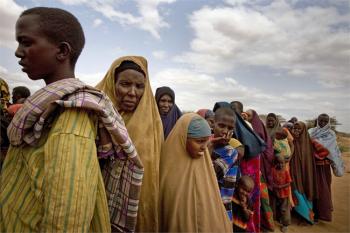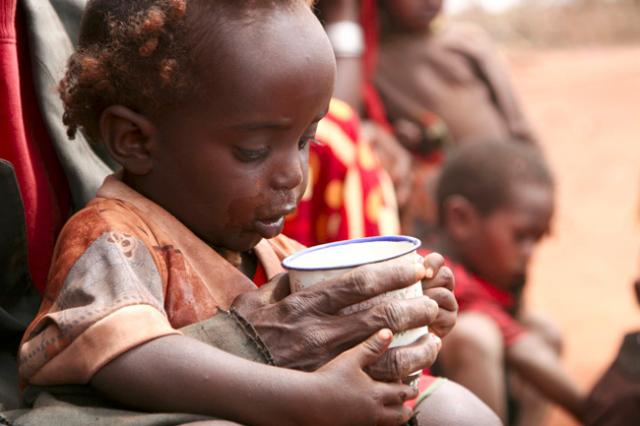from International Orthodox Christian Charities (IOCC):
August 5, 2011
In the Horn of Africa, the situation is getting worse each day for families who are suffering through the region's worst drought in 60 years. In Somalia, the United Nations has declared a famine – the first time it has made such a declaration in nearly 30 years. Tens of thousands have already died and many more are at risk.
IOCC staff are on the ground in Ethiopia to assist families in immediate need of food assistance and are working to expand critical relief efforts to address the food crisis. Working with Orthodox Christian and ecumenical partners, IOCC is addressing the needs of people in remote areas of Southern Ethiopia, including Somali refugees who are arriving daily.
We need your help to provide life-saving support for these families.
Please keep the people in the Horn of Africa in your prayers and respond by clicking here to make a donation to help the victims of disasters around the world, like those in Horn of Africa, by making a financial gift to the IOCC International Emergency Response Fund. Or, call toll free at 1-877-803-IOCC (4622), or mail a check or money order payable to IOCC, P.O. Box 630225, Baltimore, Md. 21263-0225 and designate International Emergency Response Fund.
************************
IOCC Responding to Severe African Drought


Baltimore, MD (IOCC) — As more than ten million men, women and children face hunger and life-threatening health consequences from the worst drought to hit the Horn of Africa in 60 years, International Orthodox Christian Charities (IOCC) is responding with aid to relieve victims of the worst food shortage crisis in the world today. Working in cooperation with the Ethiopian Orthodox Church Development and Inter Church Aid Commission (EOC-DICAC) and partner agency International Medical Corps (IMC), IOCC is delivering financial support to help alleviate the emergency needs of Somali refugees in southern camps of Ethiopia.
The initial IOCC relief will support healthcare responders assessing the immediate and basic health, nutrition, sanitation, and hygiene needs of the refugees, and support their efforts to provide emergency assistance such as distribution of food and water, therapeutic feeding programs for the severely malnourished, construction of latrines, and coordination of other hygiene activities to prevent spread of disease in such overcrowded conditions.
Deputy Country Representative for IOCC Ethiopia, Seifu Tirfie, says that years of working with EOC-DICAC to improve health standards through the development of clean water sources and improved agricultural techniques to withstand drought allows IOCC unique access to provide swift and targeted relief. "Our extended grass roots network and excellent relationship with the government gives us a very good opportunity to deliver prompt and relevant assistance to people facing the serious threat of starvation, particularly women and children." Tirfie adds that IOCC and its relief partners will be closely monitoring the situation and assessing additional needs.
The devastating drought conditions in the Horn of Africa following no rain for the past two seasons has dried up farmland and pastures, leaving failed crops and dying livestock. The people of Ethiopia, Kenya and Somalia have been hardest hit by the drought-induced food shortage, but according to UN Refugee Agency, UNHCR, those living in Somalia have suffered the added burden of skyrocketing food prices and civil war. UNHCR estimates that an average of nearly 1,700 Somalis, mostly women and malnourished children, arrive every day at the Dollo Ado refugee camp in southeastern Ethiopia after walking barefoot for days in search of food and water. Of the children that don't succumb along the way and make it to the extremely overcrowded refugee center, some are so malnourished that they die before medical workers can intervene.
|
|


